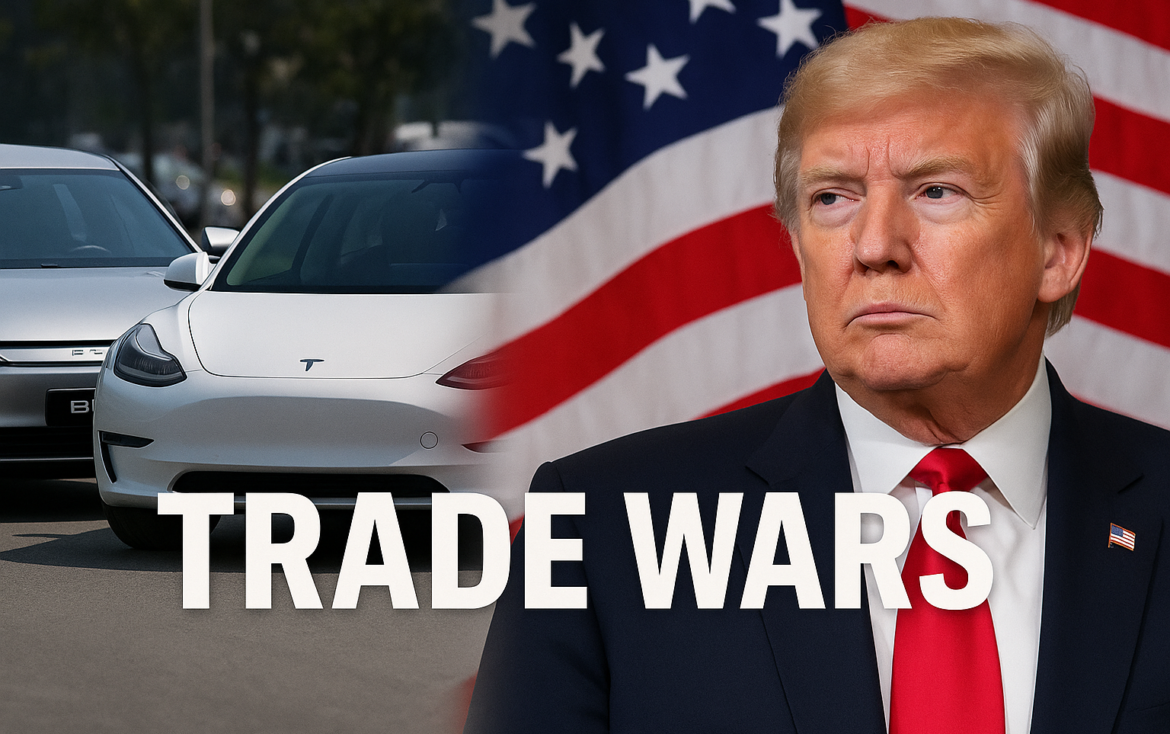In a historic shift, Chinese electric vehicle (EV) giant BYD has overtaken Tesla as the world’s largest electric vehicle manufacturer. This milestone marks a significant turning point in the global EV market, with BYD’s relentless innovation and strategic expansion propelling it to the top spot.
Founded in 1995 by Wang Chuanfu in China’s megacity of Shenzen, BYD which is now China’s number 1 automaker began as a battery manufacturer before expanding into the EV market. With a strong focus on research and development, BYD has consistently pushed the boundaries of EV technology, introducing innovative models like the Tang, Song, and Han.
While many believe that BYD stands for “Build Your Dreams”, Wang said in an interview with Tencent that it originally had no such meaning. BYD was simply an odd combination of three Chinese characters, “Bi Ya Di”, he told the online interview program. The slogan “Build your Dreams” was later conceived for marketing purposes.
While it did not come as a shock that BYD was able to leap frog Tesla as the world’s biggest manufacturer of Electric Vehicles(EVs), the irony of a Chinese company upstaging a company owned by one of Trump’s closest allies was not lost on observers given that China is a major target of the Trump administration’s trade wars. To make matters worse, things have since gone southwards for Tesla as consumers around the world vented their anger on the Tesla brand to protest the role Elon Musk has been playing in the Trump administration.
Even though the BYD brand is not sold in the United States due to the 100% tariff imposed on Chinese EVs by the Biden administration, BYD was able to increase their sales by 29% in 2024 to $107 billion while selling a total of 4.27 million hybrid and EVs during the year. In contrast, Tesla had a 1.1% decline in sales to generate revenues of $97.7 billion from the sales of 1.79 million EVs in 2024.
However, BYD’s rapid growth didn’t happen by chance, they actually enjoyed a lot of support and protection from the Chinese government. In 1991, only 500,000 cars were manufactured in China annually compared to the Japanese neighbours who manufactured 13.5 million cars in the same year. To boost the Chinese automobile industry, the Chinese government slammed a 100% tariff on imported cars and also introduced the use of import licenses to restrict the number of vehicles being imported into China.
This policy was specifically designed to encourage the production of vehicles in China, and foreign manufacturers that wanted to benefit from the huge Chinese market by setting up factories in China were also compelled to cede out at least 50% of the ownership to Chinese nationals if they were to be allowed to operate in China. Based on this policy, imported car sales in China have never exceeded 6% of total car sales annually in China in the past 35 years, while the number of cars manufactured annually in China has increased to 31.5 million as of 2024.
Other factors that have contributed significantly to BYD’s remarkable growth include the Chinese government policies encouraging EV adoption by providing subsidies and incentives for manufacturers like BYD. Unlike Tesla, which caters only to the premium end of the market, BYD offers a wide range of EV models, from affordable compact cars to luxury sedans and SUVs, catering to diverse consumer needs.
BYD has also formed strategic partnerships with companies like Toyota, Volkswagen, and NVIDIA to enhance its technology and expand its global reach. At the same time, BYD’s expertise in battery manufacturing has enabled it to develop high-performance, cost-effective batteries, driving down EV costs and increasing range. The latest BYD charging technology, which allows a charge of 250 miles range within 5 minutes, compared to Tesla’s so-called super chargers, which takes 15 minutes to charge 200 miles of range have been a game changer for BYD and helped to cement it’s position as the global leader in the production of EVs.
While Tesla remains a leading player in the EV market, the company faces challenges as the global EV market becomes increasingly crowded, with established automakers and new entrants vying for market share. This is apart from Elon Musk’s political exposure, which has resulted in a major backlash for the company in major markets across the world.
Tesla also faces regulatory challenges, particularly in the United States, where the company has clashed with authorities over issues like the safety of its autonomous driving technology, while BYD’s autonomous driving technology, code-named “God’s eye” has received ample support from the Chinese authorities.
As BYD takes the lead, the global EV market is poised for continued growth and innovation. With governments worldwide promoting sustainable transportation, EV adoption is expected to accelerate, driving demand for innovative, affordable, and environmentally friendly vehicles.
In conclusion, BYD’s remarkable achievement demonstrates its commitment to EV excellence and its strategic vision for the future. As the company continues to push the boundaries of EV technology, it is likely to maintain its position as a leader in the global EV market. The question remains if Trump’s trade war will be capable of reversing the trend.
Kunle Oshobi, a development economist, management consultant, and author, writes from Lagos, Nigeria.

